See you on the continuum, David Lynch.
A few overdue words of gratitude for one of the artists who has inspired, enlightened, and influence my imagination most.
[This post has been stitched together from various spur-of-the-moment thoughts and responses to the passing of David Lynch on Janaury 15.]
On September 20, 2017, I had one of those opportunities that makes me feel so grateful as a writer. I had the opportunity to review David Lynch's Twin Peaks: The Return for Christianity Today.
The films of David Lynch have been frightening and inspiring me since I was fourteen years old, when my uncle, who had taken me to see Star Wars when I was seven (and knew he had changed my life forever), invited me to join him on what looked likely to be another life-changing trip to the movies. He took me to see Dune.
Well… you win some and you lose some, I guess. This wasn’t exactly Star-Wars-Level Epiphany #2. The film was even darker and more troubling than Frank Herbert’s novel had led me to anticipate, and I think my uncle may have felt he’d made a mistake in exposing his young nephew to a big-screen epic so fraught with perverse villainy.
Since then, I’ve come to understand that the movie was a calamitous production, one that Lynch views as a colossal failure due to the ways in which Universal Pictures predictably fractured his ambitious and complicated vision. The studio wanted the next Star Wars, and Dune was never going to be that.
Still, I was mesmerized by it. I had just read the novel, and I was already enthralled with Herbert’s imaginary cosmos and his profound portrayals of power’s corrupting nature and the dangers of messianic religions. My head and heart were changed by Herbert’s story of a people who, living in poverty and persecution, are blessed with conscience and vision to resist the tyranny of narcissistic fascists and warlords. This was a much more substantial story of a rebellion against an empire than Star Wars had been. This was, in a way, Star Wars for grownups — and it had existed first, so I felt that I was discovering the DNA of the childlike fantasy epic that had dominated my young imagination.
It would be five or six more years before I saw Blue Velvet on VHS. I wasn’t really ready for it. While I was dazzled by its unconventional overturning of American iconography, I wasn’t sure if the movie existed to meaningfully illuminate the nature of evil, or if Lynch might not just be reveling in onscreen perversity. It would be many years before I could return to it with more sophisticated lenses to study it as a necessary distressing of sentimental storytelling conventions. (I wouldn’t see Eraserhead or The Elephant Man for many years to come, and in retrospect I think it’s odd that I avoided them.)
And then my college classmates and I began gathering in a dormitory TV lounge every Sunday night to watch each episode of Twin Peaks as the saga unfolded. This was our neighborhood! The evergreens and Snoqualmie Falls! The diners! The logging trucks on the freeway! The owls! That show drew us into a haunted and haunting place that made our Pacific Northwest surroundings come alive with wild, new imaginative possibilities. To this day, I will play Angelo Badalamenti’s enchanting score as I drive winding roads through Douglas Firs, where waves of ghostly fog billow all around, erasing and restoring the world. That cast of unforgettably strange characters took up permanent residence in our imaginations and conversations.
And the slow revelations of a terrifying spiritual warfare taking place in the hearts and minds of those characters inspired rich conversations about what we believed about worlds beyond what we can see or touch. While Lynch’s fantasy was unlikely to be popular among evangelical Christians, whose sensibilities tended to be too sentimental for such a complex and painful drama, and whose were uncomfortable imagining God at work beyond their own narrow definitions and presumptions, I found Twin Peaks to be deeply rooted in the realities revealed in Christian Scriptures — particularly the letter to the Ephesians, in which we are told that “our struggle is not against blood and flesh but against the rulers, against the authorities, against the cosmic powers of this present darkness, against the spiritual forces of evil in the heavenly places.”
What’s more — I had close friends who had suffered through painful experiences of spiritual oppression, friends who gave credible testimonies of encounters with demons, ordeals of possession and prayerful deliverance. Twin Peaks was addressing such things with uncanny eloquence.
David Lynch was, of course, a human being wrestling with his own private challenges in ways that influenced his art for better and for worse. There are aspects of his films that expose what I find to be weaknesses and dangerous tendencies—particularly in his portrayals of women. (I’m not a fan of Lost Highway, and while I greatly admire Mulholland Drive, I am troubled by its more lurid scenes.) Too often, there is a “male gaze” problem in Lynch’s word; at times, he films his actresses in ways that seem exploitative and self-indulgent. At the same time, the core of Lynch’s storytelling is a heart of deep empathy for women and girls who are abused, exploited, and even raped. And in that empathy, there is also a profound intuition that such visceral violatons are connected to how we treat the natural world, and how we treat all things bright and beautiful.
If you want to get a glimpse of the goodness in his heart without dealing with the darker, more explicit, more grotesquely violent matters exposed in his excavations of human depravity, I recommend The Straight Story, a G-rated film he made for Disney that gives us a picture of profound repentance and reconciliation. That film has helped me discern the difference between the horrific evils that Lynch is exposing in his art and the light by which he is able to illuminate so much about our world so clearly.
So, it was with that experience in mind that I approached writing about Twin Peaks: The Return, which is at once the funniest, strangest, darkest, and most provocative work of his career.
Excerpt:
... [W]hile Ephesians 5:11 exhorts believers to abstain from “the fruitless deeds of darkness,” it concludes with compelling instructions: “Expose them.”
Lynch’s art doesn’t flinch in “exposing” human folly. Nor does he condone or glamorize it. If anyone finds his characters’ evils appealing, the problem is in the viewer, not the show.
Flannery O’Connor’s words seem particularly helpful here:
"The [artist] with Christian concerns will find in modern life distortions which are repugnant to him, and his problem will be to make these appear as distortions to an audience which is used to seeing them as natural; and he may well be forced to take ever more violent means to get his vision across to this hostile audience. When you can assume that your audience holds the same beliefs you do, you can relax a little and use more normal ways of talking to it; when you have to assume that it does not, then you have to make your vision apparent by shock—to the hard of hearing you shout, and for the almost blind you draw large and startling figures."
I cannot help but notice that the 2024 election has turned loose within the United States government a host of grotesques who are hell-bent on sabotaging democracy. They are “flooding the zone” with so much violence and so many lies that we who fight for truth, justice, liberty, and democracy are in danger of becoming exhausted and giving up this essential fight with the forces of evil. Trump is handing wealth and power to an appalling array of villains who resemble and represent everything that David Lynch's films condemned as evil.
Come to think of it, that goes for how those frauds and crooks look in the light of Jesus's teaching, too.
The Scriptures command us “Do not despise the prophets.” And I find Lynch’s work about the evils of toxic masculinity, so central to the storylines of Twin Peaks and his feature films, prophetic and profound.
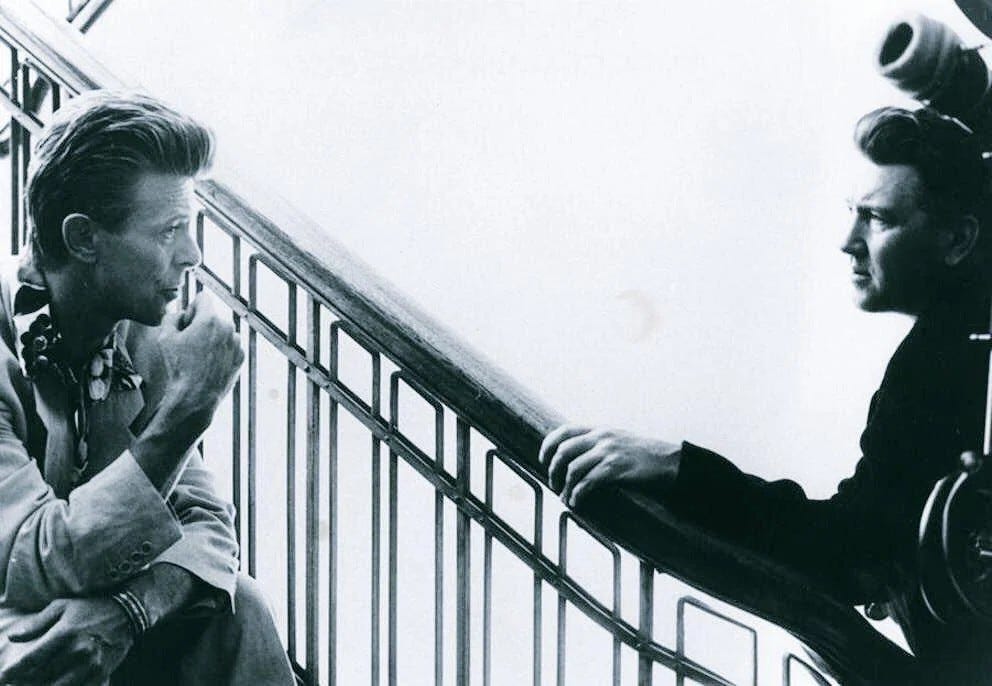
I would never claim that his faith aligned exactly with the teaching of the Hebrew Bible or the Second Testament. But the overlap is considerable, and Lynch's vision blazed brightly with reflections of the Truth. (To get better acquainted with the rather unusual vocabulary of Lynch’s spirituality, listen to one of his final interviews on NPR’s Wild Card, posted below.)
The deep grief at the heart of all of Lynch's work is a heart broken over the destruction wrought by the Satanic spirits that possess weak and ravenous men in Blue Velvet, Twin Peaks, and more.
The beauty is a heart intent on love, grace, and reconciliation, as we see aglow in The Straight Story.
Most importantly, Twin Peaks extends grace even to the murderous, who he gives a chance to see the light and repent in their final hours.
Lynch’s art will remain a profound testimony that exposes the wretchedness of the ascendent powers of racism, misogyny, lies, and hatred in America and around the world. He built signposts that point us to the Kingdom of God, the gates of which are open to us here and now, and how darkness can overcome that.
Got a light?
In a way, I feel closer to you than ever, Master Lynch.
Thank you so, so much for everything. You opened my eyes and enriched my life. And I pray and hope that the cosmos will occasion long conversations between us in the future.
And thank you for your urgent sermon to the world: Fix your hearts or die.
Like Christian Bale's character driving through Los Angeles in Knight of Cups, I feel as though I can hear the voice of Major Briggs on the wind, reciting his Twin Peaks monologue, but this time it's in your voice talking to all of us:
A vision I had in my sleep last night — as distinguished from a dream which is mere sorting and cataloguing of the day's events by the subconscious. This was a vision, fresh and clear as a mountain stream — the mind revealing itself to itself.
In my vision, I was on the veranda of a vast estate, a palazzo of some fantastic proportion. There seemed to emanate from it a light from within - this gleaming radiant marble. I had known this place. I had in fact been born and raised there. This was my first return, a reunion with the deepest wellsprings of my being.
Wandering about, I was happy that the house had been immaculately maintained. There had been added a number of additional rooms, but in a way it blended so seamlessly with the original construction, one would never detect any difference.
Returning to the house's grand foyer, there came a knock at the door. My son was standing there. He was happy and care-free, clearly living a life of deep harmony and joy. We embraced — a warm and loving embrace, nothing withheld. We were in this moment one.
My vision ended.
I awoke with a tremendous of optimism and confidence in you and your future. That was my vision; it was of you. I'm so glad to have had this opportunity to share it with you.
I wish you nothing but the very best, always.





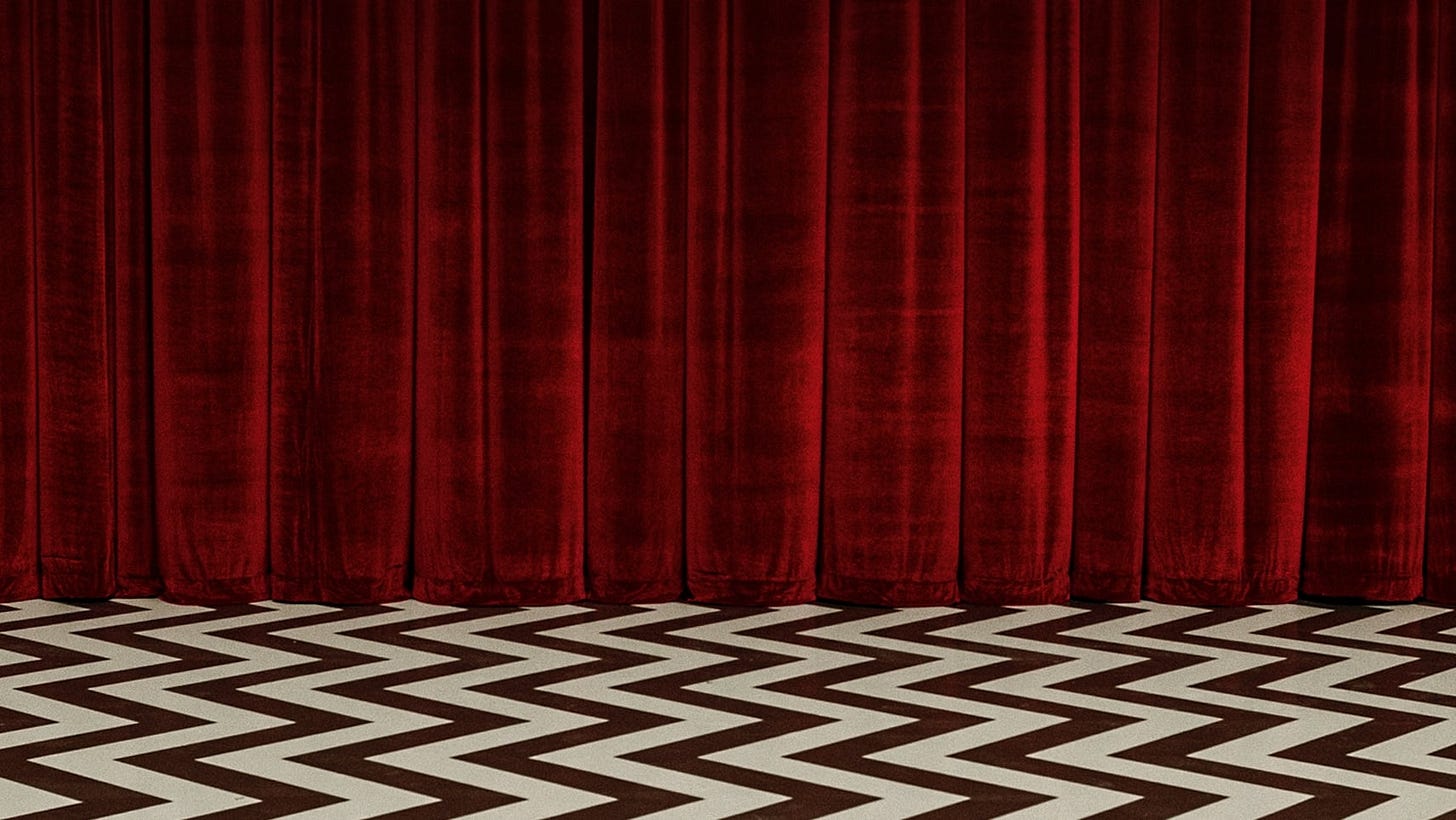
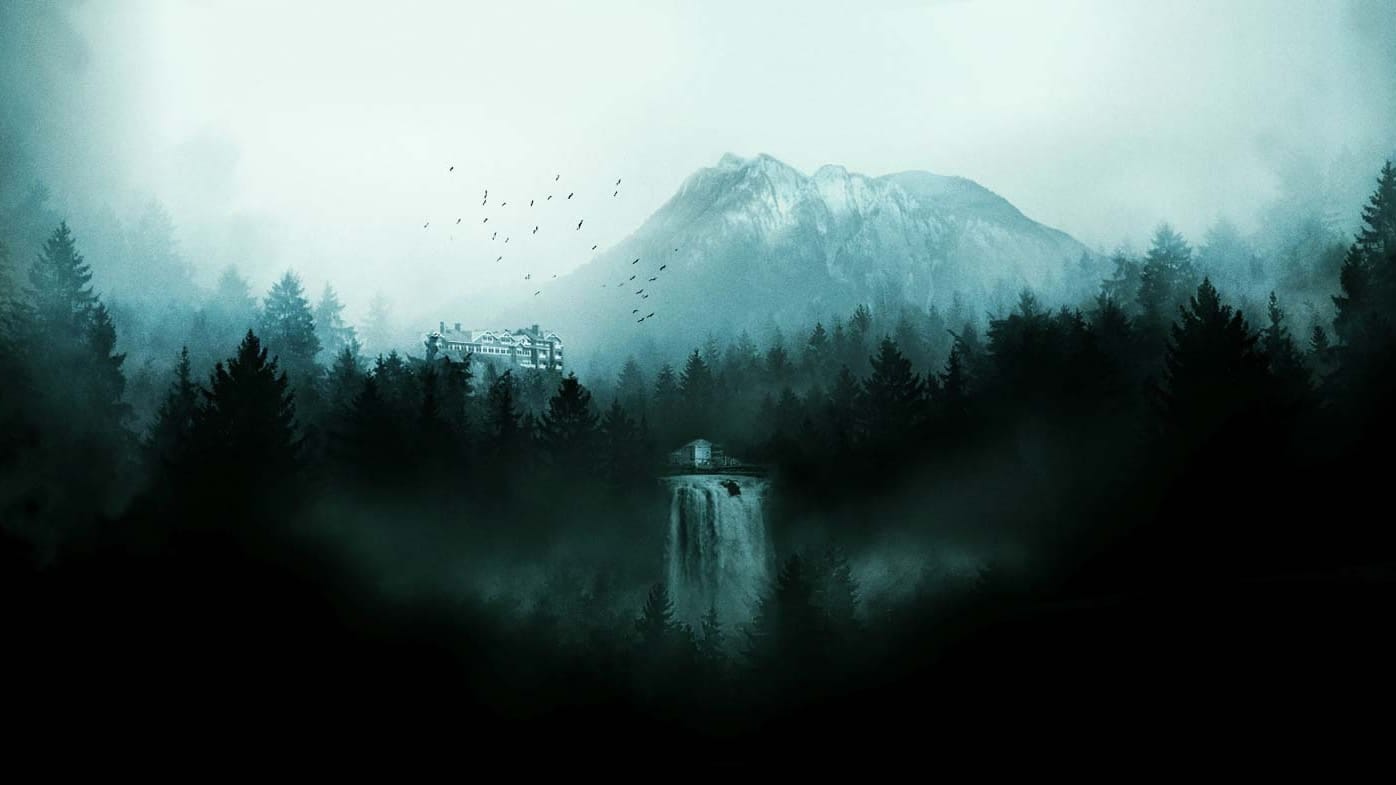
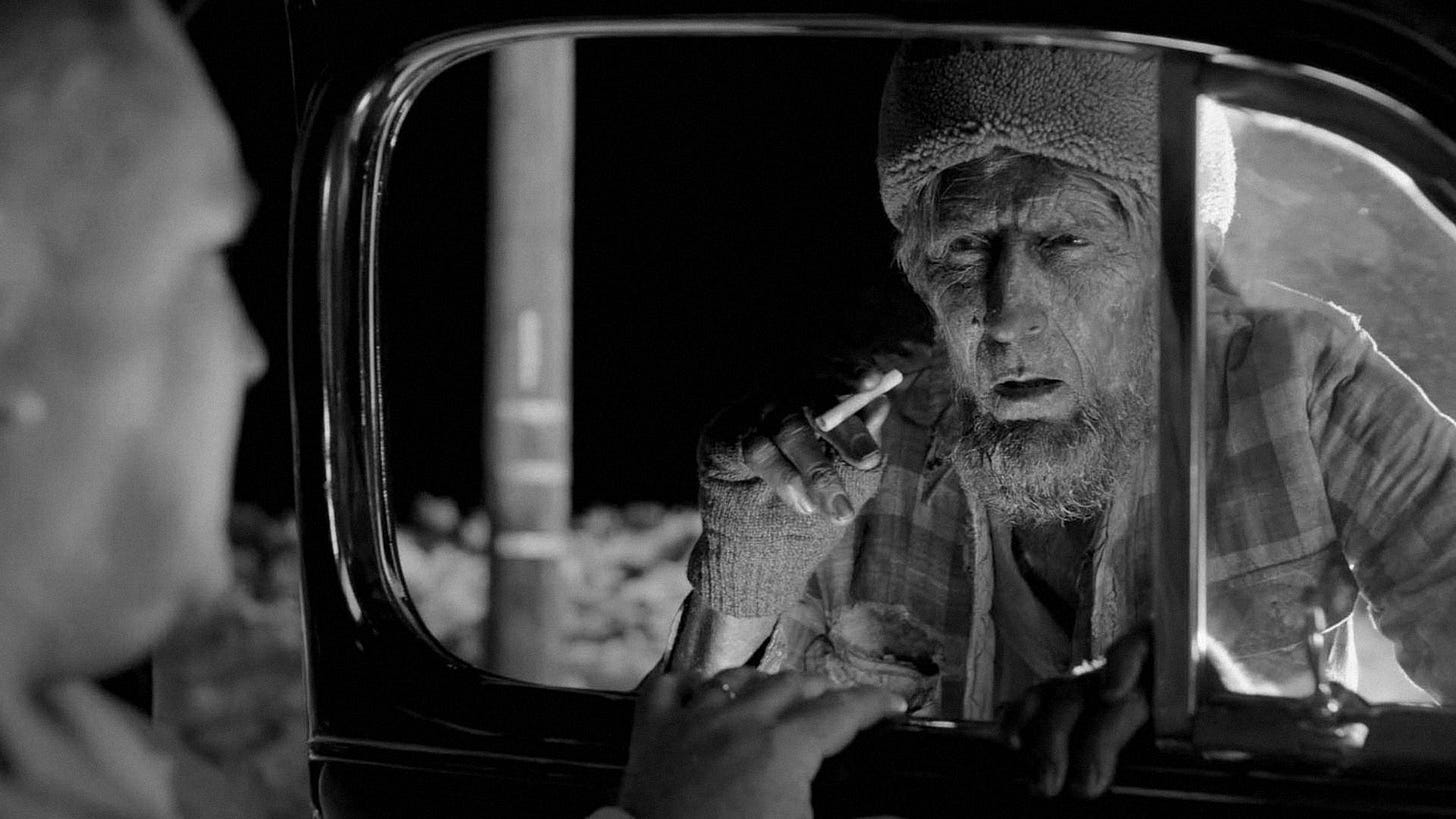
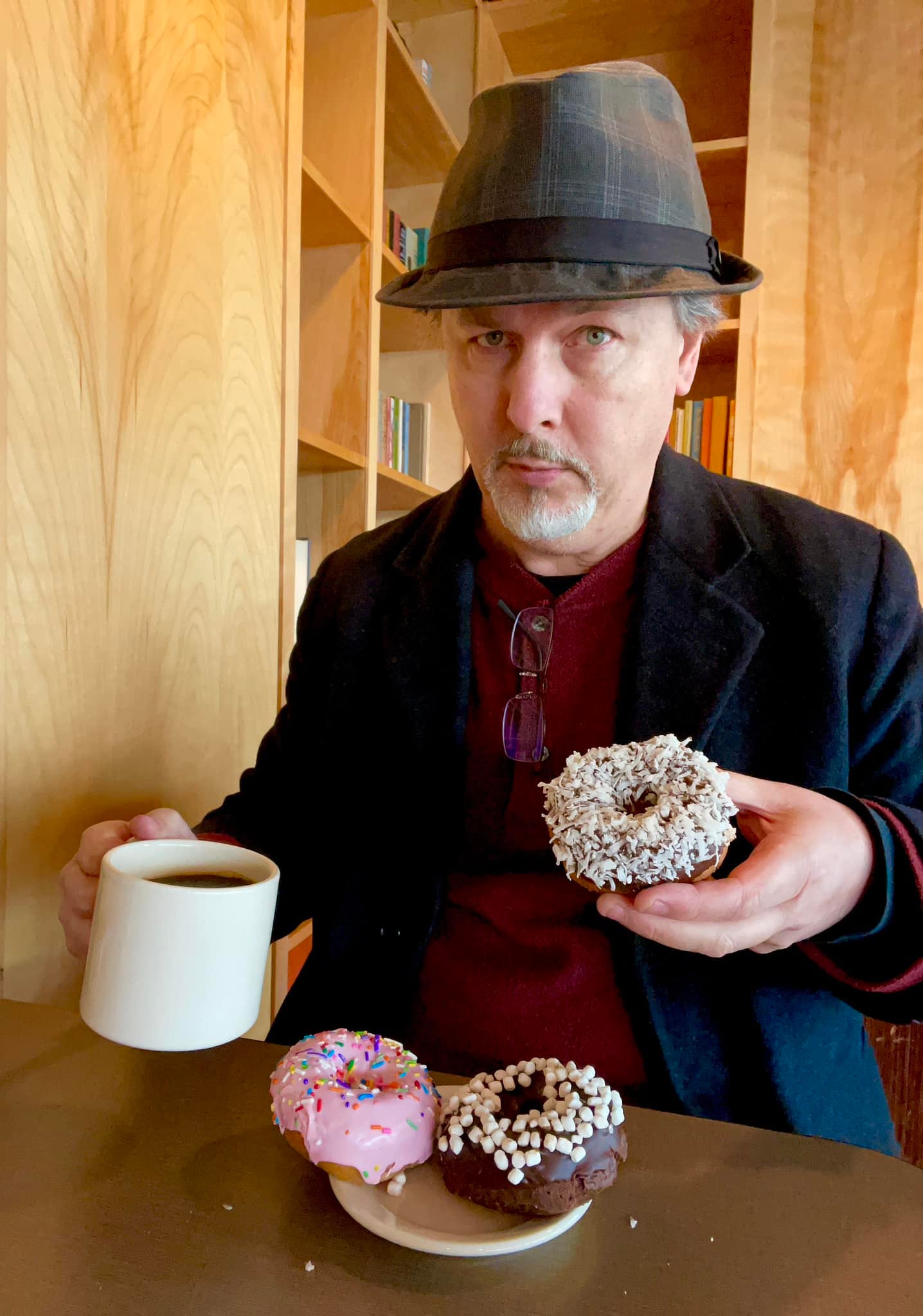
Thanks for sharing the long audio of Lynch answering random questions. Perked me up when I needed it, though I’m not going to follow him down the TM rabbit hole.
Never dawned on me that the Bowie scene in TPFWWM was making reference to Vertigo. I always thought it was extremely chaotic and mind-bending, and I just came to believe it would all remain very mysterious.